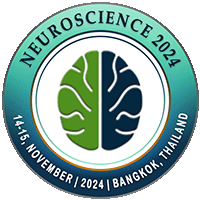
Alena Sidenkova
Ural State Medical University, Russian FederationTitle: Bio-psycho-social model of late dementia
Abstract
The syndromic structure of dementia includes neurocognitive deficits, psychopathological disorders, and deficits in household instrumental activities. The biopsychosocial model shows in dynamics the interaction of biological, psychological and social systems in the formation of each structural component of dementia. Damage to synapses, neurons, glia, blood vessels due to amyloidogenesis, taupathy, damage to mitochondria, neuroinflammation, etc. constitute the anatomical substrate of a cognitive defect. At the stage of dementia, the cognitive reserve is destroyed. Cognitive deficits include a violation of the differentiation of incoming exteroceptive and interoceptive signals, an incomplete deficit in the perception of signals, compensatory “meaningful” distortions followed by an incorrect reaction, a decrease in the speed of information processing, low consolidation of the mnestic trace, insufficiency of regulatory processes. With constantly incoming information, the number of “unprocessed” and “unanswered” signals increases, which correlates with an undifferentiated stress-behavioral response. At each discrete moment in time, the patient's personality determines an individual-interpretative-conditional reaction (delusion, anxiety, depression, etc.). Participation in the process of interaction with the patient of an informal caregiver introduces into the process of their interaction a component of partiality, emotional involvement and a conflict of expectations in the caregiver. The caregiver is faced with excitement, resistance, verbal aggression from the patient. Destabilization of the caregiver's mental state increases the risk of tension in the caregiver's affective reaction. The phenomenon of "Expressive emotions" with high intensity and speed of verbal information per unit of time is being formed, the number of additional information-noise verbal signals is increasing. This makes it difficult for a person with dementia to decipher such information. This again increases excitation, anxiety, agitation in a patient with dementia, reduces neurodynamic functions, and increases the energy deficit of the brain. Thus, each clinical symptom in dementia develops through the interaction of biological, psychological and social systems.
Biography
Professor Alena Sidenkova is a psychiatrist. Her doctoral dissertation is "Psychosocial model of late dementia". Her research focuses on the systemic interaction of bio-psychosocial factors in the development of mental illness, in neurocognitive disorders. Her research interests include the role of cognitive reserve in the dynamics of neurodegenerative diseases, early diagnosis of pathological mental aging. The results of her research are reflected in more than 200 scientific articles, 7 monographs.

